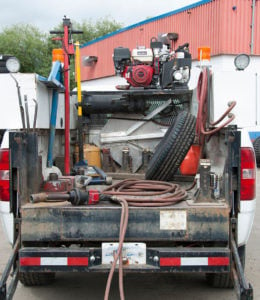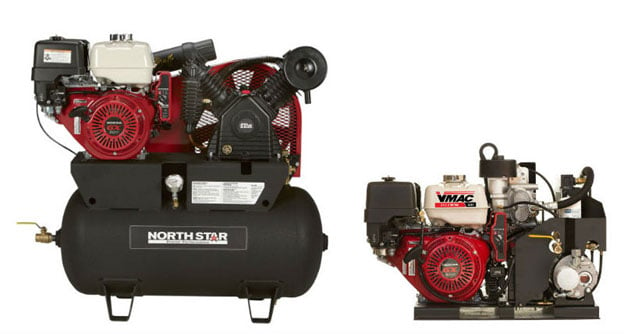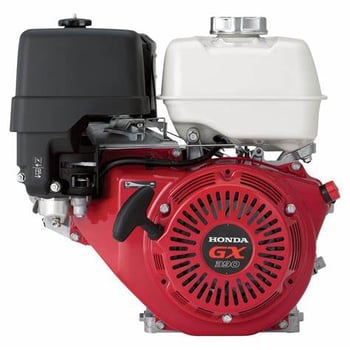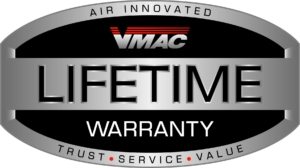How To Choose A Gas Powered Air Compressor For Your Service Truck
Choosing a gas powered air compressor for a service truck can be overwhelming! There are hundreds, if not thousands, of options on the market today, and it may be challenging to narrow them down at first. This article makes it easy to choose the best air compressor for your service truck by letting you know what matters most.
CFM Ranges & Requirements

Determining your CFM requirements is the first step in choosing the right gas-powered air compressor for your service truck. Once you narrow down your air needs, you can identify air compressors that meet those needs.
The CFM produced by gas powered air compressors ranges significantly. Service truck models start around 10 CFM and reach as high as 80 CFM. But it’s important to note that CFM also correlates to price: the higher the CFM, the higher the price. For this reason, you want to choose an air compressor that will meet your demands without being too overpowered.
To determine your CFM requirements, you first need to identify the CFM requirements of the individual pneumatic tools you plan to use with the air compressor. If you run more than one tool at a time, take the individual CFM requirement of each tool that runs simultaneously and add the CFM together.
You can read more about CFM here: How many CFM do I need to run my air tools?
When PSI Requirements Matter
Most air tools operate at 90 psi, while most gas-powered air compressors run at 90 to 125 psi. If you’re running reasonably small, standard pneumatic tools, you don’t need to put too much stock in psi when considering your compressor, as long as the compressor meets your CFM needs.
However, if you want or need tools to run above 90 psi, you’ll need to confirm the air compressor can handle it. Tools requiring 90 psi or more will likely need a two- or three-stage reciprocating air compressor or a rotary screw air compressor.
When reviewing your tools for CFM, take note of the psi to determine your air compressor requirements.
If you’re interested in learning more about psi, check out our post titled “Air Tool Pressure + 5 Reasons To Use The Right PSI For Air Tools”.
Deciding Your Budget & ROI
After you know your technical needs, your budget and ROI are the next most important factors to consider.
Gas powered air compressors range significantly in price, but that price is often tied to the air compressor’s expected lifespan. Better quality air compressors often come with a higher price tag. It’s important to consider your available budget, but don’t forget to calculate ROI.
Let’s take a look at two example scenarios:
| Example A | Example B |
|---|---|
| Reciprocating Air Compressor | Rotary Screw Air Compressor |
| $3,500 | $5,500 |
| 2 Year Warranty | Lifetime Warranty |
At first glance, Example A is the less expensive option, but is this really the case? (Spoiler: no!) There’s more to this equation than upfront costs. The warranty is a good indicator of how long the air compressor is expected to last. If you divide the upfront cost by the years the air compressor is under warranty, the dollars tell a different story:
Example A – 2 Years = $1,750 per year
Example B – 4 Years = $1,375 per year
Example B – 10 Years = $550 per year
A $3,500 air compressor that lasts three years costs roughly $1165 per year that it’s in use. By contrast, a $5,500 air compressor under a lifetime warranty only needs to last five years to cost less per year. The longer it lasts, the better the savings you get. If you plan to be in business for at least five years, Example B is the clear winner.
It's a worthy investment if an air compressor costs twice as much but is built to last three times as long. That’s a general rule, but there will always be exceptions. Operators who only plan to be in the business for a couple of years or know they will upgrade equipment soon will likely find a better value in Example A.
Before you go out and decide on an air compressor, think about how much you’re able to spend and how long you plan to use the system you purchase.
Reciprocating vs. Rotary Screw Designs
There are two types of gas powered air compressors made for service trucks: reciprocating, also called piston, 2-stage or 3-stage, and rotary screw.
Rotary screw air compressors come at a higher cost than their reciprocating counterparts in exchange for big benefits: smaller size, lighter weight, and an air end that outlives service trucks. Reciprocating air compressors require an air receiver tank to build up a store of compressed air, and this tank roughly doubles the size and weight of the air compressor system.
It’s easier to understand the difference when you see it firsthand, so let’s do some side-by-side comparison. Here are two gas-powered service truck air compressors that use the exact same Honda GX390 engine:

On the left of the above image, you can see the NorthStar model 459382, a decent-quality reciprocating air compressor. The Honda GX390 engine is at the top left of the system. The pistons are located in the two-prong antennae-shaped casing at the top right, with a cast iron pump and crankshaft located directly below. In this case, the mandatory air receiver tank is at the bottom of the entire system and is a 30-gallon tank.
To the right of the image is VMAC’s G30 rotary screw air compressor. You can see the same red GX390 engine, but the similarities end here. The rotary screw air end is located in the silver cast aluminum casing beside the engine’s fuel tank. The other visible components are part of the oil separator and filtration systems. Note there is no air receiver tank, which saves a significant amount of space and weight. An optional air receiver tank may be recommended for certain applications, but it often isn’t required.
Comparison Stats
| Reciprocating (NorthStar 459382) | Rotary Screw (VMAC G30) | |
|---|---|---|
| Weight | 492 lb (dry) | 205 lb (wet) |
| Height | 40” | 23.9” |
| Width | 19” | 21.4” |
| Length | 41” | 33.5” |
| Air Output | 24.4 CFM @ 90 PSI | 30 CFM @ 100 PSI |
| Price | $$$ | $$$$ |
These two systems are excellent representations of typical reciprocating and rotary screw air compressor types. They demonstrate the notable difference in size and weight and show how rotary screws offer more power despite their compact size.
If you want to learn more about the difference between rotary screw and recip air compressors, check out these resources:
Easy Guide To Rotary Screw Air Compressors
Performance Differences of Rotary Screw vs. Reciprocating Air Compressors
Common Gas Engine Types

You may have noticed Honda engines mentioned a few times in this article, and that’s not a coincidence. Honda has become the most popular supplier of gas engines for air compressors, and they’re everywhere for a good reason. Honda engines are hard-working powerhouses that provide optimal results in trying conditions.
However, Honda isn’t the only gas engine out there. There are several gas engine options for service truck air compressors, including:
- Briggs & Stratton
- Honda
- Kohler
- Loncin
- Mi-T-M
- Predator
- Subaru
Ultimately, the air compressor manufacturer will source and choose the gas engine used in their system. While the engine will impact the performance and capabilities of an air compressor, you’ll see it reflected in the specs.
However, there are a few things you can look at when considering engines:
- Warranty
- Dealer Support Network
- Tech Support
The engine can be a secondary consideration if the CFM and other specs meet your needs. However, if you’re still in doubt and want the confidence of owning a high-quality engine, pick an air compressor that uses a Honda GX series engine.
Gas Air Compressor Warranties

A quality gas power air compressor is built to last several years and should survive in outdoor work conditions. For this reason, many manufacturers will back their air compressors with warranties.
We recommended choosing an air compressor under warranty for two reasons:
- Warranties protect your investment, providing peace of mind and saving you thousands of dollars if a malfunction occurs.
- Better-than-average warranties can be an indicator of a high-quality air
Of course, not all warranties are the same. Any air compressor with a Honda GX390 engine will have a 3-year warranty on the engine component, making it a standard offer. But what about the air compressor itself? That’s where you’ll see a massive range in warranty.
You’ll need to check individual compressors to confirm details, but it’s fairly common for reciprocating air ends to come with 1- or 2-year warranties, if they even have a warranty, while some rotary screw manufacturers back their air ends with lifetime warranties. For example, VMAC offers a lifetime warranty on the air end component of the G30 gas air compressor.
Reputable manufacturers will stand behind their products and ensure the air compressor will not fail.
Connect With Your Local Upfitter
Once you know what you’re looking for—CFM, psi, rotary or recip, and warranty expectations—it’s time to get hands-on! We recommend talking to a local service truck upfitter or equipment dealer to learn more about available gas air compressor models.
Connect with a trusted VMAC dealer here!
Not all dealers will stock every available gas powered air compressor on the shelf, but they will be able to speak knowledgeably on the gas driven products they provide and ensure the air compressor you choose will be the perfect fit for your needs.
A Word of Caution About Online Reviews
Before we wrap this up, let’s also take a quick moment to talk about affiliate links in reviews, which are becoming a problem for buyers in the air compressor industry.
If you do a quick search for “best gas air compressor,” you’ll quickly notice a few top contenders repeated on several sites—but you’ll also see that each of these “best of” sites contains Amazon links. These are affiliate links, and the authors get paid each time you buy a compressor through one of those links.
Affiliate linking is a problem because it encourages authors to promote the products that pay them the most, versus the products that will serve you best. These “best gas air compressors” lists are often the “best paying gas air compressors,” which significantly bias the articles.
That’s not to say these articles don’t include valuable information, but take the positivity with a grain of salt and wait to make a decision until you talk to a reputable service truck builder or upfitter.
Summary of Choosing Your Air Compressor
Choosing an air compressor for your service truck should be easy! Follow the steps below, and you’ll be in a solid position to make your final decision:
- Determine your CFM requirements
- Determine whether you need more than 90 psi
- Figure out your budget
- Choose reciprocating vs. rotary screw
- Review warranty options
- Talk to your local service truck builder or upfitter

Additional Articles & Resources
VMAC G30 Air Compressor Product Info
